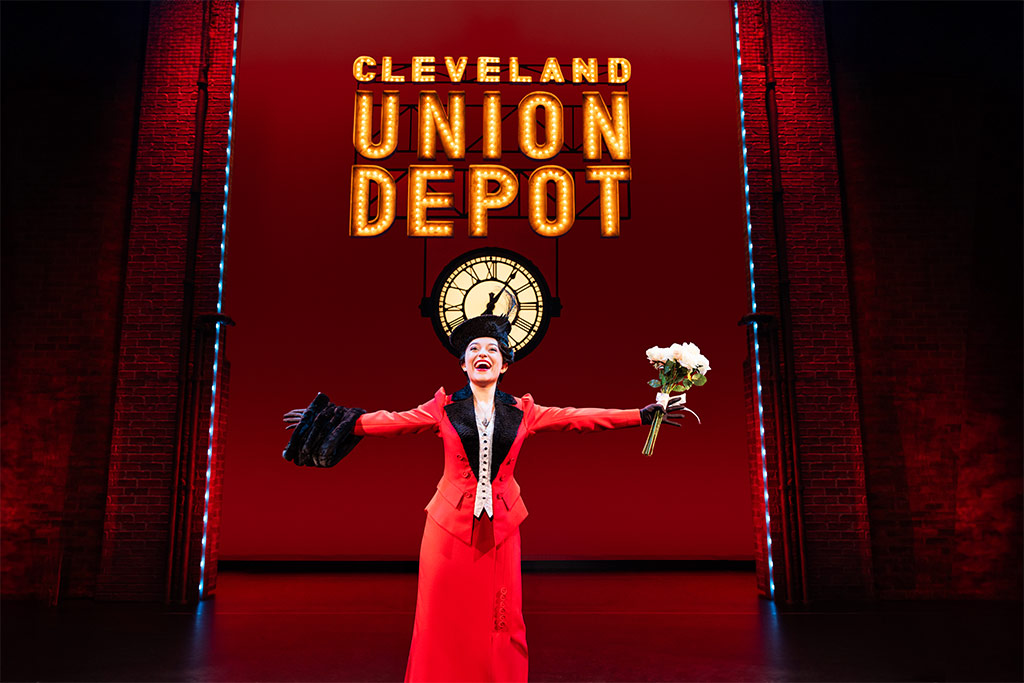Review: WNO’s “La Boheme”
WNO's "La Boheme" is saturated in uncompromising quality and creative detail

Many of you will remember a production of La Boheme, some seasons ago, in which Mimi’s tragedy unfolded in a Euro-trashy corner of a gritty modern-day city, complete with steaming grates. There were many audible grumbles from those who like their operas unadulterated. But, whatever one thought of the concept, the singing was superb and there was not a single compromise to the opera’s integrity.
Flash forward to last season’s Magic Flute, and a bold and wonderful design concept that was hopelessly marred by the dumbing-down of the spoken parts. It was a powerful, if misguided, bid to appease newcomers, but it was another example of how hard it is to get the balance right between attracting the next generation of opera-goers and keeping the die-hards happy.
So, how do you please all the people, all the time?
Try this season’s Boheme: a full-bore, traditional production saturated in uncompromising quality and creative detail. It may not pander to the uninitiated or cater to street trends, but, given a chance, it will win new hearts. More importantly, it will also win new minds — ones that will begin to accept the intellectual leap, without compromise.
It starts with the unwaveringly confident direction of Jo Davies and Peter Kazaras, who, along with Lee Savage’s wonderful sets, give this lovely story the ebb and flow of a well-told fairy tale (the old-fashioned kind, where it ends badly). There is a simple but beautifully crafted physical and dramatic choreography in every move here, whether it be two actors slowly circling one another in song or a stage-filling crowd scene. It’s the kind of vision that makes for compelling viewing — nothing is wasted and every detail matters, whether it is a grand gesture or the briefest shadow. It creates a special kind of cohesion where every aspect adds something to the whole: the amazingly-detailed hubbub of the café scene, the delicate line of trees visible across the common, the people reading and smoking in their evening windows, or the magical arrival of a brief snow.
Thus, a magical stage is set, literally and figuratively, for the singers (it is a shared cast over the run through November 15) and the two stand-outs are, without doubt, Corinne Winters’ Mimi and John Chest’s Marcello. At opposite corners dramatically — Mimi is the gentle soul and devoted girlfriend of Rodolfo, while his friend Marcello is the demonstrative artist and lover of the flirty Musetta — theirs are the performances that carry the night and live on in the memory.
Making Mimi more than a beautiful songbird is not easy, as she is already ill and frail when we meet her in Rodolfo’s icy garret. However, Winters brings a quietly enduring hopefulness to her young woman, which owes a lot to understatement. There is no hand-wringing, the swooning is minimal, and what issues from Winters are the hallmarks of Mimi’s unique spirit — a quiet self-possession and intelligence. Of course, it is Mimi’s song that must bring her pathos and Winters’ soprano is heartbreakingly lovely. Sweet but not saccharine, subtle but gratifyingly true, a sound that is the essence of Mimi herself.
Channeling a bit of Chris Hemsworth-style blond brawn, Chest (aptly named) knows how to toss some manly locks. Although his pairing with Musetta never quite takes off (she seems far too mature for him — but more on that later), he’s more than enough stand-alone entertainment. Humorously tortured but also rather brooding, Chest’s effective and contemporary take on Marcello delivers just the kind of urgency a very traditional production needs. Put another way, adults enjoy fairy tales as much as children, but ours must include a bit of frisson, and Chest delivers it. A young and athletic baritone, Chest sings with seemingly effortless dexterity and expression — a total joy.
Though it seems a little unfair to say it, Saimir Pirgu’s Rodolfo pales a bit in comparison to this Marcello. It’s unfair because, although Rodolfo has an extraordinary (and famous) aria to sing with Mimi and other vocal highlights, he has far fewer opportunities to describe a character. He must be shown through his attentions to Mimi and the quality of his ardor is thus key. Though, like Chest, Pirgu cuts a pleasing figure, he doesn’t quite exude enough of the necessary passion. Young men may love deeply, but, let’s face it, there isn’t much daylight between their soulfulness and their sexual passion. This Rodolfo waits on his Mimi, reacts to her, but the “bed warmth”, for want of a better phrase, is lacking. His is a tenor that also needs a warming period, being a tad tight during his initial courtship of Mimi and the beautiful “che gelida manina.” He does gain in vibrancy later, however, and opens to a bright and golden sound. It’s a progression that seems to parallel his emotions. They, too, do finally flow, but it’s too late for Mimi and for us.
As Musetta, Alyson Cambridge has tremendous charisma and a wonderfully rich soprano, but she feels like she belongs in another place, less operatic fairy tale, more musical theater. Having said that, her accessibility is one of the many elements here that will reach out to those unfamiliar with the genre.
These few realities aside, there is just so much here that works: from the sensitive conducting of Philippe Auguin, to the stunningly well-sung and acted performance of the WNO Children’s Chorus, to the judiciously offered visual symbolism. This is one Boheme that will please every crowd.
[goldstar-plugin teritory=8]
Support Metro Weekly’s Journalism
These are challenging times for news organizations. And yet it’s crucial we stay active and provide vital resources and information to both our local readers and the world. So won’t you please take a moment and consider supporting Metro Weekly with a membership? For as little as $5 a month, you can help ensure Metro Weekly magazine and MetroWeekly.com remain free, viable resources as we provide the best, most diverse, culturally-resonant LGBTQ coverage in both the D.C. region and around the world. Memberships come with exclusive perks and discounts, your own personal digital delivery of each week’s magazine (and an archive), access to our Member's Lounge when it launches this fall, and exclusive members-only items like Metro Weekly Membership Mugs and Tote Bags! Check out all our membership levels here and please join us today!

























You must be logged in to post a comment.